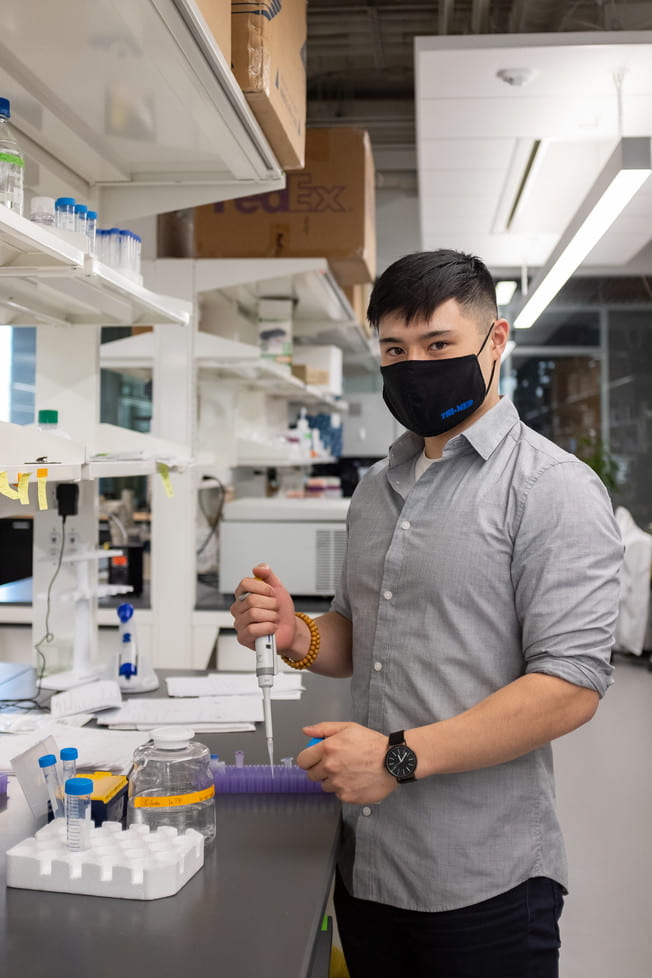
Visible even from the exterior of the Science Center building, the glass-encased upper floor laboratory spaces offer a glance into the inner workings of the research conducted in the Biology Department. Here, students are often seen working on experiments headed by professors, but they can also elect a more independent project their senior year: a thesis.
Eric Jung is a Biology major completing his thesis in Professor Marc Edwards’ lab, and was available to Zoom with me from his lab space on April 7th. He is working with the social amoeba Dictyostelium discoideum to elucidate the controllers of cell movement. This organism serves as a translational model for identifying how immune and cancer cells travel within the body.
Although Eric knew early in his freshman year at Amherst what major he would choose, he didn’t think he would be undertaking such a big project back then. Fast forward to the spring semester of his sophomore year, he joined the Edwards lab and worked alongside seniors completing their own theses. Wanting to venture into more independent research, Eric took Special Topics courses with Professor Edwards in his junior year. This solidified his decision to pursue a thesis the following year.
Eric’s project is a continuation of his previous work in the Edwards lab, where he studies directed cell migration. More specifically, he has been experimenting with mutant Dictyostelium that lack an important molecule involved in both cellular consumption and motility. This signaling molecule, which was thought to be a largely unimportant byproduct of another process until recently, has implications for immunology and medicine. In these fields, researchers are still working to understand how independently regulated processes are integrated during cell migration. These processes of recognizing, chasing, and breaking down invaders are different actions controlled by separate pathways; by studying key molecules that synthesize information between these pathways, Eric hopes to be able to draw parallels to other systems to explain defects in cell migration such as cancer metastasis.
Eric was in the final weeks of experimentation when we spoke. He had been spending up to 10 hours a day in the lab this semester. After his experiments are complete, he will be dedicating time towards data analysis and write-up. He admitted it was demanding, but was grateful that his thesis advisor was always a quick call or text away in case any issues came up. Although he is just finishing up his thesis, the knowledge he gained from his research experience helped him find a job post graduation already. His final thoughts? Talk to as many professors as you can to learn about their research because, chances are, you’ll find a number of them fascinating. A thesis may not be for everyone, but for those who are up for the challenge, it is definitely worth it.
You must be logged in to post a comment.